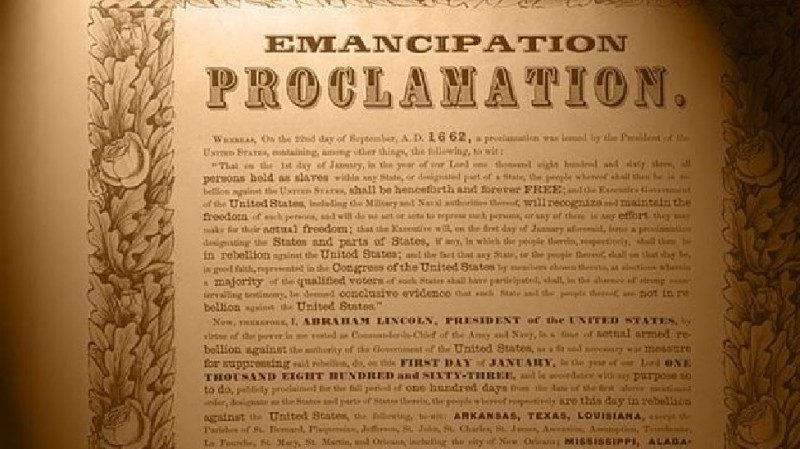
Introduction
The Emancipation Proclamation, issued in 1863 by President Abraham Lincoln, stands as one of the most significant milestones in the history of the United States. This executive order declared the freedom of enslaved individuals in Confederate-held territories during the American Civil War. In this article, we will delve into the profound impact of the Emancipation Proclamation, explore its historical context, and analyze its consequences for the nation.
1. The Road to the Emancipation Proclamation
The journey toward the Emancipation Proclamation began long before its issuance. Slavery had been a deeply entrenched institution in the United States since its early days, leading to rising tensions between the Northern and Southern states. The issue of slavery became a central point of contention during the Civil War, which erupted in 1861.
2. The Contents of the Emancipation Proclamation
The Emancipation Proclamation consisted of two main parts. The first part declared the freedom of all enslaved individuals within Confederate-held territories, while the second part provided the legal framework for the recruitment and employment of African Americans in the Union Army and Navy. Although it did not instantly abolish slavery in the entire country, it marked a critical step toward the eventual eradication of this abhorrent practice.
3. The Significance of the Emancipation Proclamation
The Emancipation Proclamation held immense significance on multiple fronts. Firstly, it transformed the Civil War into a battle for freedom and human rights, galvanizing the Union forces and weakening the Confederacy's moral standing. Secondly, it laid the groundwork for the eventual passage of the Thirteenth Amendment to the United States Constitution, which formally abolished slavery nationwide. Lastly, the Proclamation played a crucial role in shaping public opinion domestically and internationally, garnering support for the Union cause and undermining the Confederacy's legitimacy.
4. Reactions and Controversies Surrounding the Proclamation
The Emancipation Proclamation stirred intense reactions and controversies both within the United States and abroad. While it was celebrated by abolitionists and African Americans, many in the Confederate states vehemently opposed it. Some Southern states even went as far as to declare their secession from the Union. Furthermore, the Proclamation faced criticism from individuals who believed it did not go far enough in addressing the rights and liberties of newly freed individuals.
5. The Proclamation's Impact on the Civil War
The Emancipation Proclamation had a profound impact on the course of the Civil War. By linking the war to the abolition of slavery, it transformed the conflict from a primarily political struggle into a moral crusade. This shift further galvanized the Union troops and encouraged enslaved individuals in Confederate-held territories to escape to Union lines, significantly weakening the Confederate war effort.
6. The Aftermath of the Emancipation Proclamation
Following the Emancipation Proclamation, the Union Army actively worked to enforce the liberation of enslaved individuals in Confederate-held territories. As Union forces advanced, they liberated countless slaves, creating a significant shift in the demographics and social fabric of the region. However, it is important to note that the Proclamation did not immediately grant equal rights and opportunities to African Americans. This struggle for equality and the fight against systemic racism would persist for decades to come.
7. The Continuing Fight for Equality
While the Emancipation Proclamation marked a critical turning point in the abolition of slavery, it did not automatically eradicate racism and discrimination in the United States. The legacy of slavery and the fight for civil rights continued long after its issuance. African Americans faced numerous challenges, including segregation, voter suppression, and economic disparities. It took further activism and legislation, such as the Civil Rights Act of 1964 and the Voting Rights Act of 1965, to advance the cause of equality in America.
Conclusion
The Emancipation Proclamation stands as a landmark moment in American history, symbolizing the nation's commitment to freedom and equality. Its issuance during the Civil War was a strategic and moral move that transformed the conflict and set the stage for the eventual eradication of slavery. While challenges remained and the fight for equality continues, the Emancipation Proclamation's impact cannot be understated.
SC Grants Ashish Mishra Extended Interim Bail Amidst Lakhimpur Kheri Violence
The Benefits of Mind-Body Practices: Yoga, Meditation, and Tai Chi
Supreme Court's Landmark Decision: Stays Arrest of Lawyer in Manipur